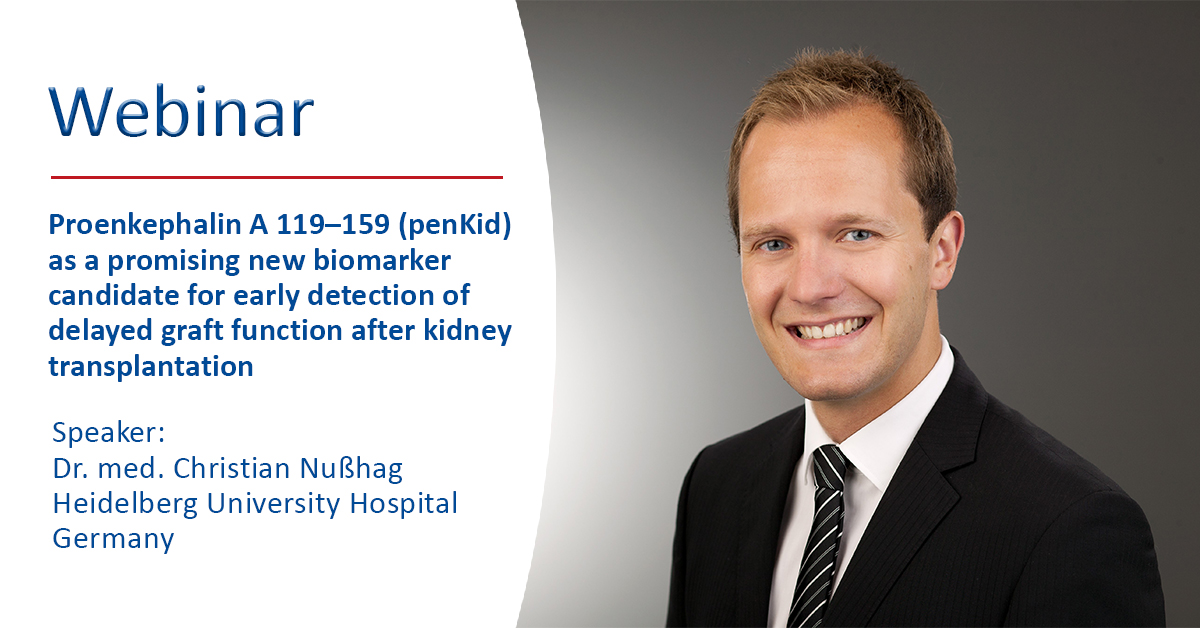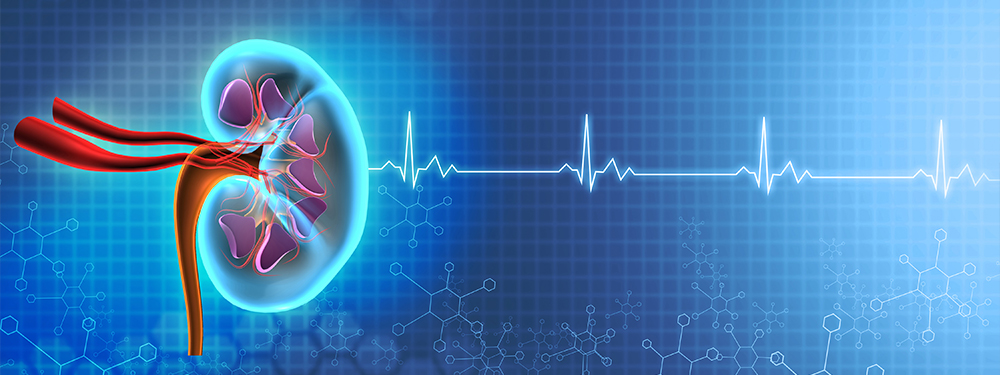Proenkephalin A 119–159 (penKid) as a Promising New Biomarker Candidate for Early Detection of Delayed Graft Function After Kidney Transplantation
Speaker: Dr. Christian Nußhag, Heidelberg University Hospital
Join Dr. Christian Nußhag for a webinar where he presents real-world data on the kidney function biomarker proenkephalin A 119-159 (penKid) for diagnosing Delayed Graft Function (DGF) in patients after kidney transplantation. According to these first findings, penKid seems to outperform traditional markers in identifying delayed graft function within just 24 hours post-transplantation.
These data, presented at Kidney Week 2023 of the American Society of Nephrology (ASN), offer hope for the development of new strategies to improve early post-transplant care. DGF often leads to prolonged hospital stays, compromised long-term graft function and reduced quality of life for patients. There is a need for more accurate and timely methods to identify DGF and its extent, which the biomarker proenkephalin A 119-159 (penKid) aims to address.
Participation Fee: Free
Read more about the speaker
Show more InfoDr. med. Christian Nußhag,
Heidelberg University Hospital
Dr. Christian Nußhag is a Senior Physician at the Kidney Center of the Heidelberg University Hospital. He currently leads the research group for acute kidney injury and organ replacement therapy at Heidelberg University Hospital, which was recently awarded the 1st prize in Experimental Research by the German Interdisciplinary Association for Intensive and Emergency Medicine (DIVI). Dr. Nußhag's research interests encompass acute kidney injury, biomarker development, organ replacement therapy, and transplantation medicine. Dr. Nußhag completed his academic journey with a doctorate in Pharmacology from the University Medicine Mainz, specialist certification in Internal Medicine in Heidelberg, and studies at both Johannes Gutenberg-University Mainz and the University of Zurich.

Fill in the form to watch the webinar on demand
Watch other webinars on demand
Disclaimer
The information presented on the webinar(s) is meant for healthcare professionals only. The information provided does not claim to be exhaustive and is not intended to serve as medical advice, substitute for a doctor’s appointment, or be used for diagnosing or treating a disease.




